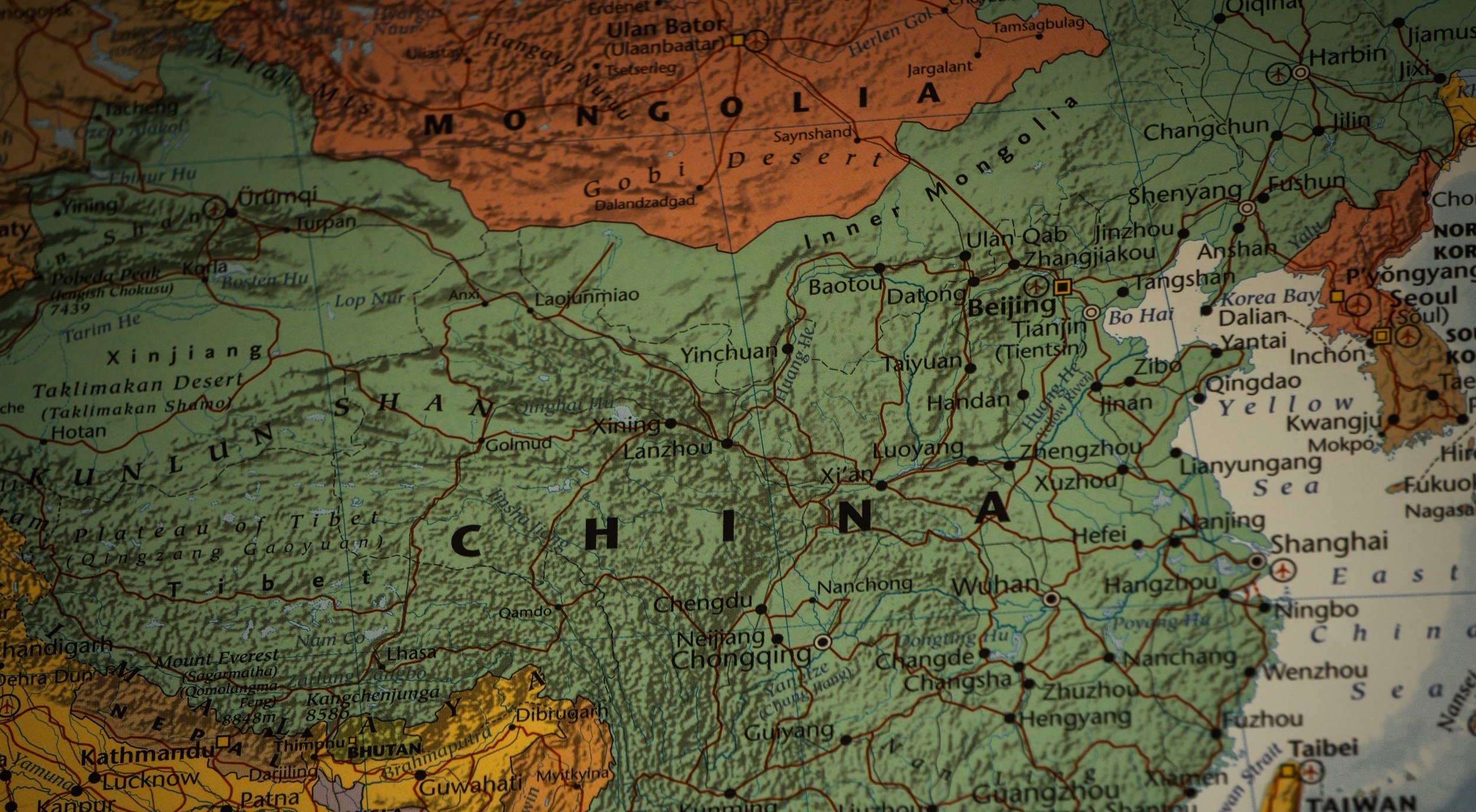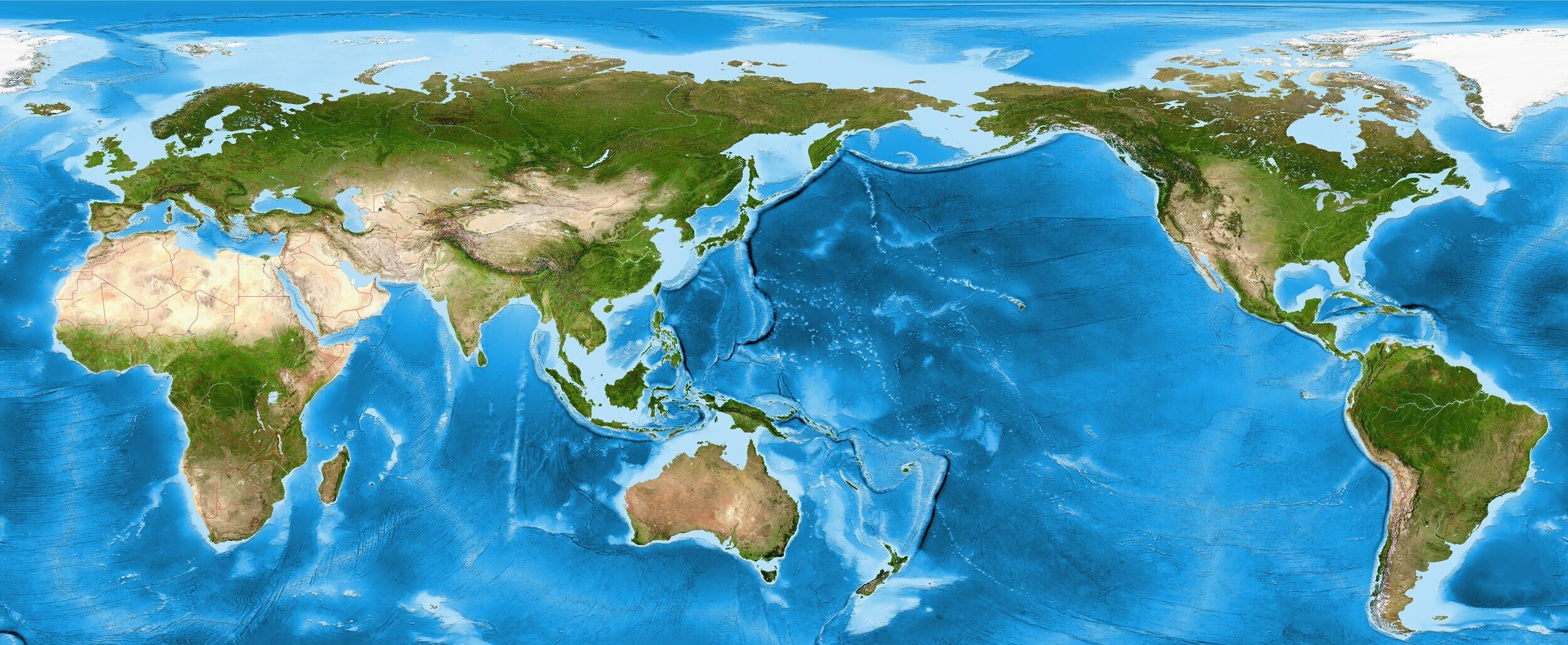Elbridge Colby, a former Deputy Assistant Secretary of Defense for Strategy and Force Development and a leading official in the development of the 2018 National Defense Strategy, has the curriculum vitae to provide an authoritative reassessment of U.S. defense strategy. Anchored in theory and bolstered by historical references, the book provides valuable nuggets of information, but it stops short of being groundbreaking—particularly for readers who are already well abreast of Chinese affairs and the principles of strategy.
The Topography of Geopolitics: Net Resources and the Past, Present, and Future of American Power
Net resources offer an additional insight into historical, present, and future trends of the global balance of power, enhancing and expanding our understanding of great power politics and competition. They can be a modern-day oracle—imperfect and imprecise, but nonetheless useful…The concept of net power resources and what it indicates is relevant, and deserves closer analysis by those wishing to understand the topography of the past, present and future geopolitical challenges.
Remembering the Geography in Geopolitics and Indo-Pacific Discourse
All too often, national security policy professionals presume modern technology has obviated the importance of geographic location and physical features. Yet physical geography remains central to national security realities that will only become more severe as competition between great powers of relative parity intensifies.
The COVID-19 Pandemic and Geopolitics
Because the pandemic is still evolving, its final impact will remain unknown for months, if not years, in terms of how resulting changes may fundamentally transform the balance of global influence and resulting equilibrium. The responses by major and regional powers to the pandemic and how they are interpreted domestically and internationally are already having and will continue to have significant geopolitical implications. Those responses will prove to be highly consequential in the long term, especially when it comes to how nations manage the central levers of geopolitical power.
The U.S.-China Rivalry as Seen in the Cold War’s Rear-View Mirror
As the U.S.-China rivalry intensifies and tensions grow, references have increasingly been drawn between it and the other great geostrategic contest of the post-war era—the Cold War. While it might still be premature to speak of the current U.S.-Chinese rivalry and the half-century spanning Cold War in the same breath, it is not hard to see why the present situation is so evocative of its epoch-defining predecessor.
The Great Game Reinvigorated: Geopolitics, Afghanistan, and the importance of Pakistan
The return of great power geopolitics has transformed Afghanistan’s strategic circumstances, affecting both its future and the long-term interests of the United States. These conditions reinforce the enduring importance of Pakistan to America’s strategic flexibility, particularly in an era of renewed great power competition.
#Reviewing The Future of Strategy
Great Strategic Rivalries: The Return of Geopolitics
One cannot go far wrong by employing Thucydides as a foundation for any model, as General George Marshall reminded us. But Marshall surely did not mean for policymakers to end their studies with the Peloponnesian War. Rather, Thucydides is but a starting point for a much wider historical study aimed at revealing the true nature of strategic rivalries and the character of their ensuing conflicts.
Syria: The Dangers of the Chosen Path
Judging from recent comments, the path the U.S. seems to be on—and it’s not a path all of our European allies and regional partners share—is withdrawal from Syria except for the occasional airstrike if Assad again uses chemical weapons. This path is not good. Withdrawal would yield the area to already expanding Russian and Iranian influence. Most likely, an American withdrawal would not help reduce ISIS capacities, nor would it reduce the capacities of al Qaeda and other radical jihadist organizations. The American withdrawal and the establishment of this Russian arc of influence will move Turkey, a key NATO ally, further towards Russia; put more pressure on Israel and Jordan; and push Iraq even closer to Iran. Withdrawal also abandons our Kurdish partners, or at least puts them in a more difficult position. And withdrawal further reduces America’s trustworthiness as an international leader. Finally, U.S. withdrawal de facto rewards Assad’s brutal and ruthless behavior toward the citizens of Syria. But the U.S. does have an alternative path.
#Reviewing Earning the Rockies
It was America’s good fortune—Manifest Destiny if you will—to rise on a temperate continent with abundant resources. Great Britain ceded its empire in part because it could trust and rely on the United States. America does not share this luxury. Pragmatism must be America’s watchword, for neither isolationism nor unilateralism will work.
Destined for Competition: An Analysis of Graham Allison’s Thucydides Trap
The ‘Thucydides Trap' is a term coined by Harvard professor Graham Allison to ostensibly describe the tensions and conflict that occur when an existing great power is confronted with a rising state. According to Allison, as the new power rises, the two are more likely to engage in violent conflict as the new power displaces the old. He cites sixteen cases of power transition since the late 15th Century, of which twelve resulted in war between the two powers. Allison also cites Thucydides, and in particular the ancient Athenian author’s conclusion that the war between Athens and Sparta, chronicled in his History of the Peloponnesian War, began "because they [the Spartans] were afraid of the further growth of Athenian power.”
Challenging the Lion
The risk of violent conflict is growing in several regions of the world, which threatens U.S. national security interests and may trigger a military response in the near future. While foreign crises can arise in unpredictable ways, in many instances the warning signs are evident. Prior to conflict escalation, the opportunity exists to take preventive action to lessen the risk of events transitioning in an undesirable direction. In today’s global environment, security risks increase in a variety of ways because of coups d’état, security crises, cessations of political dynasties, and less predictable environments. With violent conflict opportunities increasing throughout the international system, state and non-state actors can impact societies in a manner that challenges U.S. national security interests as a global superpower.
#Reviewing Destined for War: An Interview with Graham Allison
In many ways the Peloponnesian War was a maritime struggle—the Athenians built their empire through their navy, the culminating point of the war was the failed Syracuse expedition where Athens lost 200 ships, and the war finally ended when Athens surrendered a decade later after the remainder of its fleet was destroyed by Sparta at Aegospotami. In The History of the Peloponnesian War, Athenian exile Thucydides details how his native city-state’s empire and power expanded throughout the Hellenic World, often at the relative expense of status quo power Sparta.
China Can’t Solve the North Korea Problem. So Who Can?
Since 4 July 2017, when North Korea tested a ballistic missile, the world’s focus has been on North East Asia and how to resolve this current crisis. The North Korean nuclear program’s sudden successes came as a shock. However, it was simply a matter of time until these technological advancements were achieved, as the technology required is no longer cutting edge and the North’s nuclear ambitions and missile development program are already several generations old. At this point, the U.S. and the North are locked in a war of words, while outside powers such as China and Russia urge calm and a return to civil relations. Some now see conflict on the Korean Peninsula as inevitable and believe only China can resolve this confrontation without bloodshed. This is wrong.
The Problem of Distance in the Information Age: Challenges for Militaries and Politicians
We live in an era of instant connection and instant communication. For instance, when news of a military incident breaks, within seconds it can be rebroadcast around the world. Within minutes commentators demand that something must be done. Yet the speed at which the news breaks means that in an era where information flow has made it easy for a military’s higher headquarters to be kept abreast of every tactical incident, we forget that the flow of information vastly outpaces than the speed of military deployment.
Not Dead Yet
Numerous voices have claimed that the day of conventional war is over. For years, these voices have predicted that “war amongst the people,” or “hybrid war,” or “gray zone operations,” or “distributed security missions,” are the new face of war. But conventional war—however it may be changing—may not be as dead as some believe. Danger is already emerging from the confluence of several unfolding trends.
The Imperative of Chinese History and Geography
#Reviewing Occupied
Climate change caused by human activity is settled science. Implications for the future of public health, the economy, and the global order of states are recognized as a real concern around the world. The European Union is strong, but NATO is not. Mid-East turmoil has compromised oil production there. The United States global hegemony is over. Complete energy independence from the rest of the world has resulted in an isolationist stance wherein the US has withdrawn from NATO as well as her other international obligations. The US remains a seeming world power with respectable military and diplomatic influence, but only grudgingly and apparently by force of reputational versus relational power. This is the scene, but not the story, and the focus is not America.
#Reviewing "American Diplomacy"
When does Putin become our Stalin?
Russia’s President, Vladimir Putin, governs over the largest landmass on earth, the world’s 2nd largest nuclear arsenal, and over 140 million people. Putin has been criticized as being cold, calculating, and autocratic. He has taken offensive measures in Crimea and Georgia, aggravating European leaders and resuscitating Cold War nostalgia and fear. Furthermore, Putin vehemently refuses to concede to rebel forces in Syria, despite President Bashar al Assad’s wartime atrocities and his illicit use of chemical weapons. While many argue these acts are evidence of Putin’s ruthlessness, they also reveal calculated and strategic foresight.





















